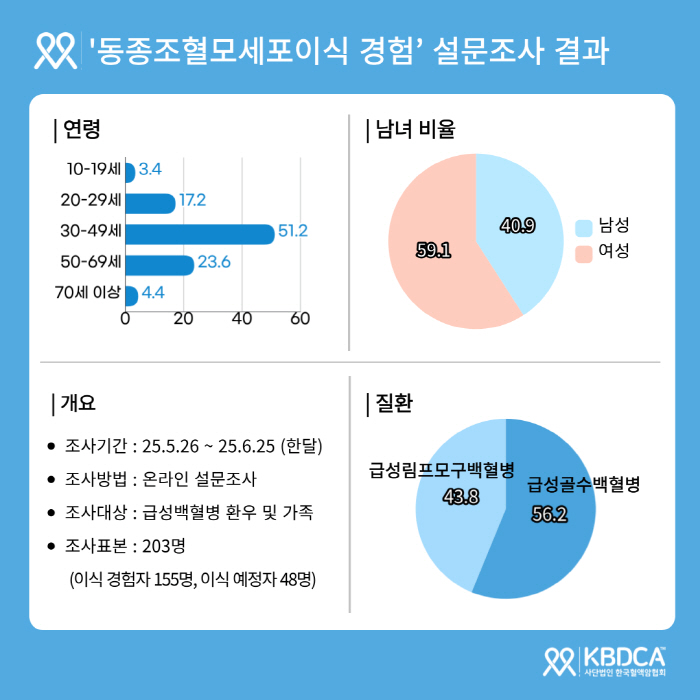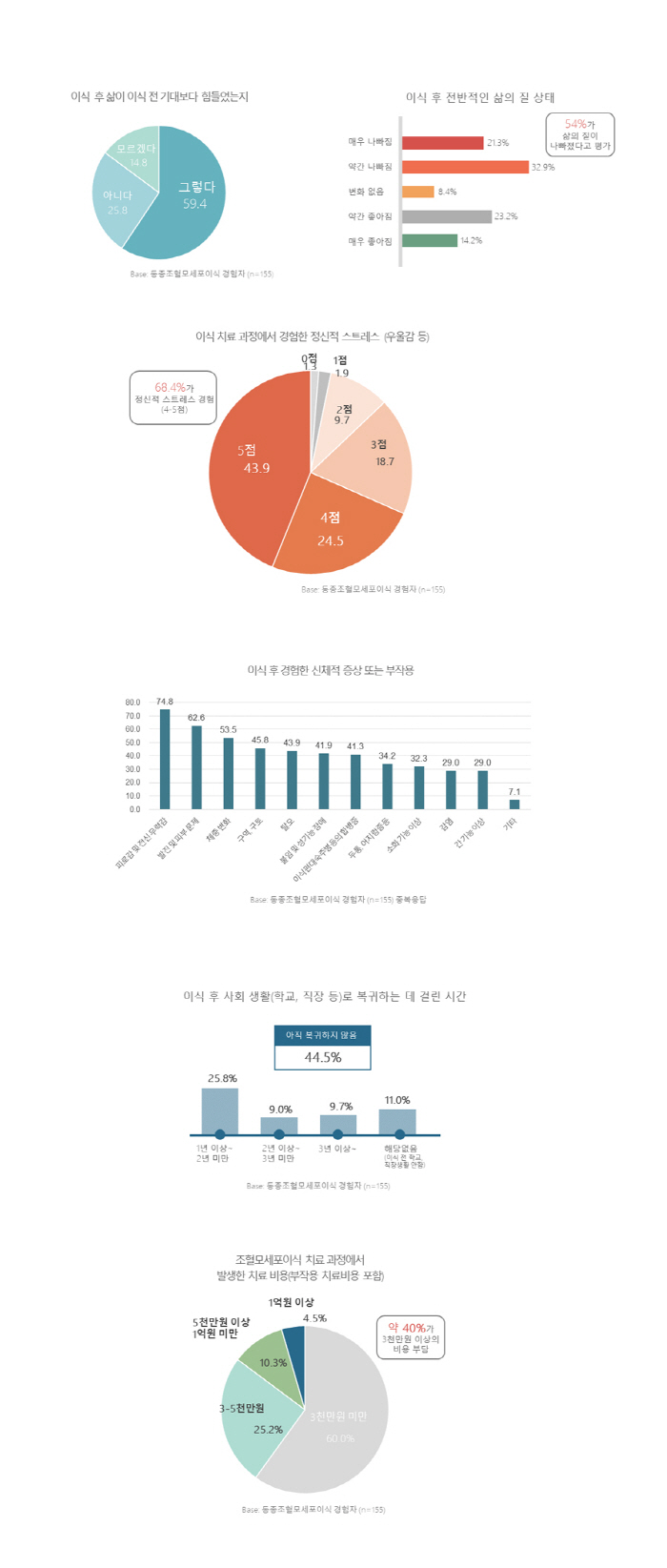After more than half of acute leukemia patients transplant hematopoietic stem cells, life is harder
|
Allogeneic hematopoietic stem cell transplantation has been considered almost the only treatment that can be expected to be cured in patients with acute lymphocytic leukemia and acute myeloid leukemia, but the survey showed that life after transplantation is an arduous journey followed by a combination of physical, mental, and economic difficulties, contrary to the expectations of patients.
According to a survey published by the Korean Blood Cancer Association, more than half (59%) of patients who experienced allogeneic hematopoietic stem cell transplantation responded that "Life after transplantation was more difficult than before transplantation", and 54% evaluated that the quality of life deteriorated overall.
Among transplant experienced, 68% complained of mental stress (depression, anxiety, etc.), and patients reportedly experienced various physical actions, including fatigue and helplessness (75%), rash and skin problems (63%), and weight change (54%), including side effects that could have serious social effects, such as infertility and sexual dysfunction (42%).
These complex difficulties have led to the constraints of daily life after transplantation, and 45% of all transplant experienced people said they have not yet returned to society.
The economic burden was also a real obstacle for patients. It has been confirmed that 40% of patients have paid more than 30 million won for transplant treatment, and a significant number of patients (63%) are also complaining of psychological stress related to the burden of transplant treatment costs.
In particular, approximately 24% of transplant experienced patients who responded to the survey experienced relapse, and 43% of them had re-transplantation. This shows that allogeneic hematopoietic stem cell transplantation does not lead to a cure for all patients, contrary to the expectations of patients, and that fighting the disease can be repeated again or rather a factor that worsens the quality of life.
Accordingly, 68% of all patients who responded to the survey expected the Korea Blood Cancer Association to play a top role in activities related to the rapid introduction of new drugs and the application of benefits.
Park Jung-sook, secretary-general of the Korea Blood Cancer Association, said "Based on the pain and voices of acute leukemia patients revealed through this survey, we were able to realize that substantial improvements in the treatment environment and policy changes are needed."The Korea Blood Cancer Association will continue to do its best to increase access to a variety of therapeutic alternatives besides allogeneic hematopoietic stem cell transplantation and reduce the physical, mental, and economic burden on patients through the rapid introduction of new drugs that enable patients to expect a cure from the risk of recurrence" he said.
Meanwhile, the Korea Blood Cancer Association is a non-profit public interest corporation (approved by the Ministry of Health and Welfare) established in 1995 by leukemia patients and is carrying out various disease-fighting support projects such as economic support, emotional support, educational counseling with medical staff, and seminars to help blood disease and cancer patients recover quickly and return to their daily lives.
|
This article was translated by Naver AI translator.





